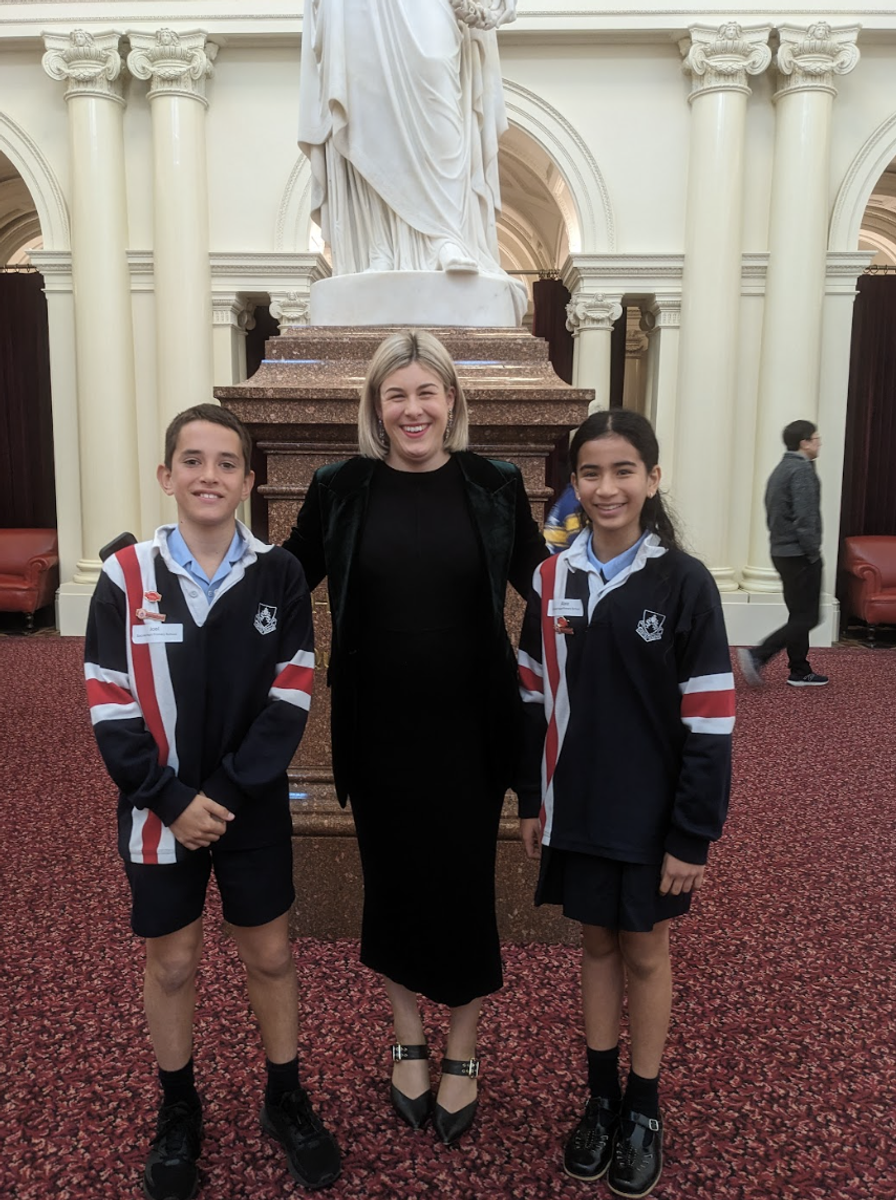Weekes' Weekly News
Learning, growing and celebrating together...

Weekes' Weekly News
Learning, growing and celebrating together...
Dear Sacred Heart Kew Families,
Back in my day, ‘student voice’ at primary school meant whether I was allowed to go to the toilet or get a drink of water. These days, it’s a little bit more involved and much more purposeful than those ‘closed’ questions…
What is student voice at school?
Student voice refers to the opinions, perspectives, and input of students in matters that affect their education and school experience. It emphasises the importance of actively involving students in decision-making processes related to curriculum, school policies, classroom practices, and other aspects of the educational environment.
Encouraging student voice empowers students to express their thoughts, concerns, and ideas, fostering a sense of ownership and responsibility for their learning. It also helps educators and administrators better understand student needs and preferences, leading to more effective teaching and a more supportive school environment.
Why is student voice important at school?
There are many reasons as to why student voice is important in the school setting.
By allowing children to express their opinions and ideas at school (having a voice), this provides them with a sense of agency and empowerment in their own education. As students are the ones directly experiencing the educational environment on a daily basis, their perspectives and insights into what works well and what could be improved are quite valuable. When children feel that their voices are heard and respected, they are more likely to be engaged and motivated to learn.
Incorporating student voice ensures that educational practices and policies are relevant and responsive to the needs of those they are designed to serve. When students have a say in decisions that affect them, they feel a sense of ownership over their learning environment. This ownership fosters a greater sense of responsibility and accountability for their academic success and behaviour. Every student brings a unique set of experiences, interests, and perspectives to the classroom.
Research has shown that when students are actively engaged in their learning and have a voice in shaping their educational experiences, they tend to achieve better academic outcomes. This is because they are more invested in their learning and are able to make connections between their own experiences and the content being taught. Encouraging student voice helps prepare students for active citizenship in democratic societies. By participating in decision-making processes within their school communities, students learn valuable skills such as critical thinking, collaboration, and advocacy that are essential for participating constructively in society. Implementing student voice in schools involves creating structures and opportunities that enable children to express their opinions, contribute to decision-making processes, and actively participate in shaping their educational experience. Sounds easy enough right?
How is student voice enacted here at Sacred Heart Kew?
There are a number of different ways that student voice operates within our school setting. It happens all the time. It may be that a particular year level requires some additional structure and support outside in the yard, maybe the football or soccer game rules and regulations need a bit of tweaking. Student voice is important here to ensure all participants can safely enjoy this activity. By providing relevant input and opinions, this will hopefully minimise the time wasted with unnecessary interruptions and disagreements during recess and lunchtimes. It takes place when our class captains offer their ideas and suggestions (on behalf of their peers), as to which types of equipment they would like installed in the new playground area. It occurs when our children are asked what kind of lunchtime activities they would like to participate in, led by our Year Six leaders. Our Year Five children were asked for their thoughts and ideas (student voice) when designs were called for their Year Six Rugby tops towards the end of last year. And our Environmental Monitors are always discussing what causes are near and dear to our school children, helping raise awareness and funds for endangered frogs and adopting a beehive (both student choice and voice!)
And finally, last week, our School Captains (Alaia and Joel) joined other school leaders at the Primary School Leaders’ Forum facilitated by Jess Wilson (Member for Kew). As School Captains they were asked to attend the Legislative Council Chamber within the Parliament of Victoria, sharing one local and one state issue that was a concern to them. Alaia spoke about increasing the number of electric charging stations across Victoria to keep up with the demand and purchase of electric vehicles. Joel spoke about increasing the number of bike lanes in the Kew area, to help lower emissions, and reduce the number of cars on the roads. Both Alaia and Joel spoke confidently and proudly, representing themselves and Sacred Heart Kew with grace and aplomb. Student voice in action yet again.
Student voice has definitely come a long way since the days of ‘can I please go to the toilet?’ or ‘can I please have a drink of water? ' It even leads you to Parliament.
Of course there are other ways that we as a school can enhance student voice, ultimately leading to a more inclusive, engaging, and student-centred learning environment. If you don’t ask questions, you will never know. And if you never know, you will never understand or improve.
Wishing everyone a lovely weekend.
Kind Regards,
Ed Weekes
School Principal

